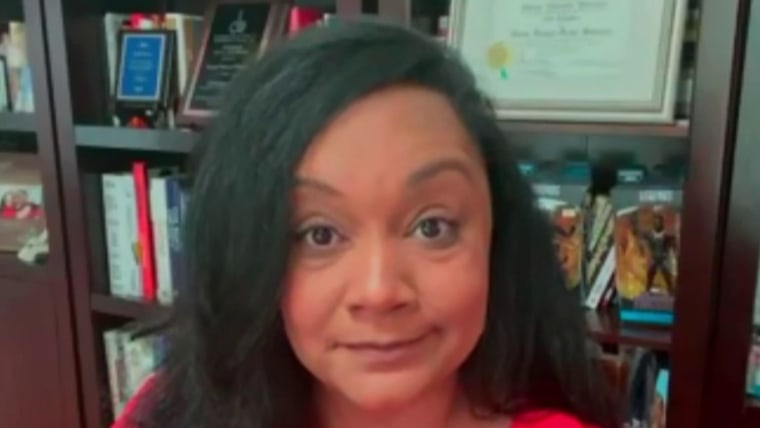WASHINGTON — Jessica King had been trying to vote in the Georgia primary all weekend. She went to her polling place on Friday to vote early but was unable to wait out the long line. She wanted to cast a ballot by mail but never received an application.
“A lot of people reached out to me and said they sent their absentee applications back but they never received their ballots,” said King, 27, a human rights advocate based in Albany, Ga.
King ultimately voted in person on Tuesday after showing up just as polls opened at 7 a.m. and waiting for a half hour. Others were less lucky, stranded in lines for more than four hours as voting continued late into the night and voting machines failed. More problems were reported in the heavily black Atlanta metropolitan area than in largely white parts of the state.
What happened Tuesday in Georgia is a warning sign for states as a nation on edge gears up for a consequential election during a pandemic. A combination of cash-strapped state budgets and dramatic changes expected in voting behavior have fueled concerns among advocates about whether the ballot box will be safe and accessible to all Americans.
“It was appalling because now you have voters in 2020 making life or death decisions about whether to vote. Voter discouragement is voter disenfranchisement,” King said. “Yesterday really showed us that Georgia is not prepared for this election. We have a lot of work to do before November and a very short time to get it done.”
The chaos was declared “unacceptable” by Georgia’s Republican Secretary of State Brad Raffensperger, who said he is investigating it. Raffensperger pointed the finger at local officials for failing to adequately train poll workers.
“The employees didn’t understand the system,” he said. “So what were they doing for all these months? All of a sudden they wake up and say let’s have an election on Tuesday?”
Georgia, a Republican stronghold for the last generation, has become more competitive in recent years and is a big prize this fall. President Donald Trump is playing defense there as presumptive Democratic nominee Joe Biden hopes to turn it blue for the first time since 1992. Georgia could also determine which party controls the Senate as two GOP-held seats are up for grabs and rated as competitive by independent forecasters.
Amber McReynolds, the CEO of the Vote At Home Institute, a national nonpartisan group that aims to make voting more convenient, called the Georgia situation “another cautionary tale” for the general election after “massive challenges” plagued a low-turnout primary.
“There’s no need to reinvent the wheel because elections work really well in a lot of states. We should focus on replicating and adopting those best practices and good policies,” she said.
She said western states like Colorado, Utah, Oregon and Washington have made strides in simplifying voting. Citing her experiences as an election official in Denver, McReynolds recommended states adopt policies like universal vote-by-mail applications, ballot tracking systems for voters to get status updates, mobile voting units and 24-hours-per-day secure drop boxes for ballots.
McReynolds faulted Congress for not adequately funding state election preparedness in the $2.2 trillion CARES Act in March.
“If you just compare what Congress allocated funds to, they gave $400 million to 50 states that serve 250 million voters, and they gave $17 billion to Boeing,” she said. “So this clearly shows where Congress’s priorities are.”
Election experts expect a surge in vote-by-mail absentee ballots, which require more resources and personnel to process efficiently, alongside fresh challenges of in-person voting during a pandemic, such as finding and training poll workers who might be wary of contracting COVID-19.
Adding to the tension is the power dynamic inherent to voting rules. Trump has said expanding vote-by-mail will hurt Republicans and lead to fraud, although studies show no evidence of either claim.
Some Democrats accuse Republican election officials of purposefully turning a blind eye to problems — or erecting barriers — in minority communities that are Democratic strongholds.
Guy Cecil, the chairman of the Democratic super PAC Priorities USA, accused Republicans of purposefully making it harder to vote. His group has backed multiple lawsuits challenging voting restrictions, including one last week in the swing state of Michigan.
“The disaster in Georgia yesterday confirms everything we have been saying for the past six years. At every turn Republicans have made it more difficult to vote through legislative and administrative action,” he told NBC News. “They have intentionally designed systems and laws to make it more difficult to vote, especially for people of color and young people.”
“This is not an accident or flaw in the system,” he said. “This is the system they want.”















